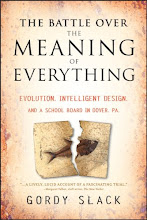“Seizures are often only the tip of the epilepsy iceberg,” says Frances Jensen, M.D., professor of neurology at Harvard Medical School and director of epilepsy research at Children’s Hospital in Boston. “We’re beginning to pay attention to what’s down below. Often that includes other serious problems, too,” she says in my article, Epilepsy as a Spectrum Disorder, in the current issue of EpilepsyUSA.
Depression, migraines, learning disorders, autism, ADHD, and Alzheimer's all have high associations with epilepsy.
Unfortunately, many clinicians only have time--or the inclination, or the expertise--to treat seizures. If they can get a patient's seizures under control, they often consider their jobs complete, while the patients continue to suffer quietly from other less salient conditions.
The upside of recognizing these associations is that with emerging insights into the relationship between epilepsy and other psychiatric and neurological problems, neuroscientists are getting a more comprehensive picture of the deeper workings of the whole brain. A consensus is emerging among researchers that epilepsy is better viewed, and treated, not simply as a disorder defined by seizures, but as something more complex and nuanced, more explicitly interrelated with other illnesses.
That's one reason many top neuroscientists argue epilepsy research should be a priority investment. When we understand what causes seizures, on a deep level, we'll also have keys to the doors of many other brain-related problems. And to an understanding of the well functioning brain, too.
Showing posts with label Frances Jensen. Show all posts
Showing posts with label Frances Jensen. Show all posts
Friday, November 19, 2010
Friday, July 30, 2010
Exposing Sudden Death from Epilepsy
A thought provoking and disturbing story in Tuesday’s Times focuses on sudden death from epilepsy (Sudep), describing it as epilepsy’s “silent killer.” “Silent” may be a stretch, but it is certainly under-discussed in clinical settings and under-studied in labs. I’m writing a book about epilepsy and I had no idea that it was as pervasive a killer of epileptics as Aliyah Baruchin reports. According to the piece, “Sudep accounts for up to 18 percent of all deaths in people with epilepsy, by most estimates; those with poorly controlled seizures have an almost 1 in 10 chance of dying over the course of a decade.”
Given that about 50 million people suffer from epilepsy worldwide, we're talking about hundreds of thousands of Sudep deaths each year. And yet, American doctors rarely tell their patients with epilepsy about Sudep. The reason they don’t, Baruchin reports, is that it would pose too heavy a psychological burden on patients who are already hard-hit by the everyday difficulties of seizures. If there isn’t really anything patients can do about it, why tell them, doctors ask. (I suspect, from my own experience, American doctors also fail to discuss Sudep because they don’t have time.) Baruchin’s piece, good as it is, begs an important question here: Is there anything you can do to prevent Sudep even if you know about it? She reports that in Britain anti-Sudep products, like mattress alarms and structured pillows, are sold to ward off Sudep during sleep. But she presents no evidence that those products do anything at all or are even recommended by doctors in the UK.
Nonetheless, if patients face a heightened risk of dying from their epilepsy, they have a right to know. And doctors have the responsibility to tell them, even if it takes time and causes discomfort. Truth matters. For one thing, without some kind of collective acknowledgement of Sudep, it won’t get the attention it deserves from brain scientists.
Too often, doctors and scientists alike treat epilepsy simply as recurring seizures. But it is so much more. Disabling as they are, “seizures are often only the tip of the epilepsy iceberg,” says Frances Jensen, MD, professor of neurology at Harvard Medical School and director of epilepsy research at Children’s Hospital in Boston. “We’re beginning to pay attention to what’s down below. Often that includes other serious problems, too.” One of those other serious problems is the propensity to die suddenly and without warning. That deserves attention.
Given that about 50 million people suffer from epilepsy worldwide, we're talking about hundreds of thousands of Sudep deaths each year. And yet, American doctors rarely tell their patients with epilepsy about Sudep. The reason they don’t, Baruchin reports, is that it would pose too heavy a psychological burden on patients who are already hard-hit by the everyday difficulties of seizures. If there isn’t really anything patients can do about it, why tell them, doctors ask. (I suspect, from my own experience, American doctors also fail to discuss Sudep because they don’t have time.) Baruchin’s piece, good as it is, begs an important question here: Is there anything you can do to prevent Sudep even if you know about it? She reports that in Britain anti-Sudep products, like mattress alarms and structured pillows, are sold to ward off Sudep during sleep. But she presents no evidence that those products do anything at all or are even recommended by doctors in the UK.
Nonetheless, if patients face a heightened risk of dying from their epilepsy, they have a right to know. And doctors have the responsibility to tell them, even if it takes time and causes discomfort. Truth matters. For one thing, without some kind of collective acknowledgement of Sudep, it won’t get the attention it deserves from brain scientists.
Too often, doctors and scientists alike treat epilepsy simply as recurring seizures. But it is so much more. Disabling as they are, “seizures are often only the tip of the epilepsy iceberg,” says Frances Jensen, MD, professor of neurology at Harvard Medical School and director of epilepsy research at Children’s Hospital in Boston. “We’re beginning to pay attention to what’s down below. Often that includes other serious problems, too.” One of those other serious problems is the propensity to die suddenly and without warning. That deserves attention.
Subscribe to:
Posts (Atom)



